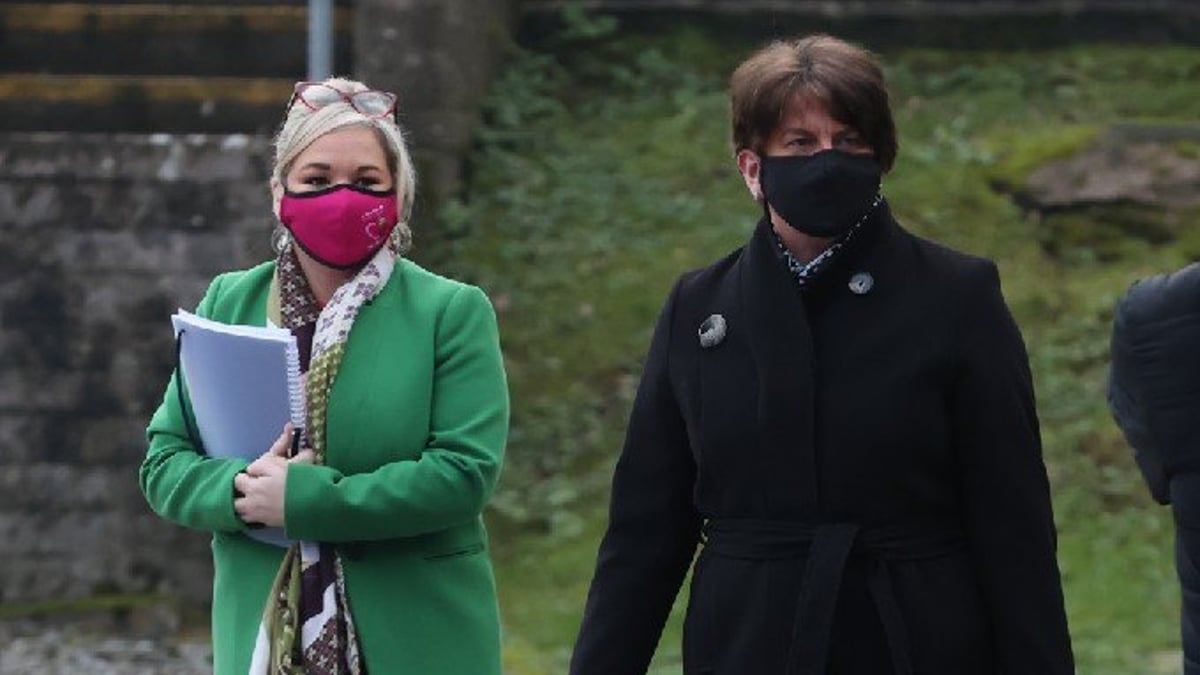United Ireland Betting Spikes Amid Call For Referendum

The chances of a united Ireland being voted for by the people of Northern Ireland have received a boost after it emerged more than half of the population are open to a referendum on UK membership.
Since the Good Friday Agreement the likelihood of Northern Ireland splitting from the mainland has been minimal. However, issues over how Westminster has handled the Brexit negotiations and subsequent trade deal with the EU, as well as a fractious few years at Stormont, appears to be swaying public opinion.
In a poll by the Sunday Times, it emerged 51 per cent of people in Northern Ireland would be willing to entertain a referendum on a united Ireland.
Of those interviewed, 47 per cent said they would vote to remain in the UK. Forty-two per cent prefer a united Ireland and 11 per cent are still undecided.
And the odds from the betting sites on Northern Ireland putting the situation to a vote have been set at a low price in a fresh market from Betfair.
United Ireland Betting Odds
Northern Ireland is 1/3 to be the next region apart from Scotland to hold an independence referendum. Those odds offer an implied probability of 66%.
However, another market suggests there is only a 5/1 chance of the Northern Irish actually voting in favour of a united Ireland by 2023.
Yet compare that to Wales, where just 23 per cent of people backed leaving the UK. Wales is 4/1 to be the next region, bar Scotland, to hold an independence referendum.
London, the Isle of Wight and Cornwall are also available on the market, with 32 per cent of all bets being placed on the capital to break away from the rest of the country at 7/1.
Merseyside Independence Odds
Other regions of the UK that could threaten to break away are priced relatively low by bookmakers Betfair. The odds of Merseyside, for example, holding an independence referendum has come in to 25/1.
The city of Liverpool is one of the busiest trade routes not only with Northern Ireland but also Ireland. An estimated three-quarters of Liverpudlians have Irish roots and 58% voted to remain in the 2016 Brexit referendum.
Occasionally dubbed the “second capital of Ireland”, Liverpool is a city that boasts its own identity to that of the UK. The city is a Labour heartland and its relationship with the governing Tory party has never recovered from the Thatcher era. Around 5% of all bets on this market have been on Merseyside holding the next In/Out referendum.
Sitting directly north of Merseyside is Lancashire – a county that is priced at 33/1 to next hold a referendum on UK membership. The county has endured a torrid political time of late around the controversy of a proposed fracking site in Little Plumpton.
Yet those odds are still remarkably slim considering all 14 districts in Lancashire voted for Brexit, with Blackpool returning a 67.5% vote in favour of the UK leaving the EU. Of the county’s 16 constituency seats, 11 are held by Conservatives.

Yorkshire Independence?
A potentially more viable region to trigger a future independence referendum is Yorkshire, the county that lays claim to the ‘North’ and encompasses 54 parliamentary constituencies and a population of 5.3 million – equal to Scotland. Yorkshire is a key driver of the Northern Powerhouse initiative and proponent of devolution. Indeed, this summer will see the first Mayor of West Yorkshire elections take place.
Back in the 1980s South Yorkshire – like Liverpool – was at odds with the Thatcher government and the then-left-wing Sheffield City Council, led by David Blunkett, enacted a string of policies that coined the notion of the ‘People’s Republic of South Yorkshire”. In more recent times, the idea of Yorkshire triggering a Catalan-style referendum has been floated.
Priced alongside Lancashire at 33/1 to trigger the next independence referendum (bar Scotland), it does appear as though Yorkshire won’t be applying to leave the UK any time soon. But with the Yorkshire Party having won a handful of seats in the 2019 local elections, there is evidently an appetite for some form of locally-sourced representation – even if a full-blown break away from Westminster and the union is unlikely for now.
Problems For Boris Johnson
The UK is already currently facing the prospect of Scotland holding a second independence referendum to decide whether or not to break away from the union.
The SNP is expected to perform well in Scottish Parliament elections in the summer of 2021, with leader Nicola Sturgeon likely to use the election victory as a mandate to hold IndyRef2.
Scotland voted 55%-45% in favour of staying in the UK back in 2014. However, since then the SNP have grown in number and pitched the UK’s exiting of the European Union – which only a minority voted for in Scotland – as a reason for launching a second referendum bid.
Prime minister Boris Johnson is already facing the prospect of campaigning for the No side if IndyRef2 did come about – something that could act as a detriment to the campaign, considering the PM currently has an approval rating of minus 44 per cent north of the border.
Stay In The Loop With Free Bets, Insider Tips & More!
Live Betting. Sports Promos. Sent Weekly.






